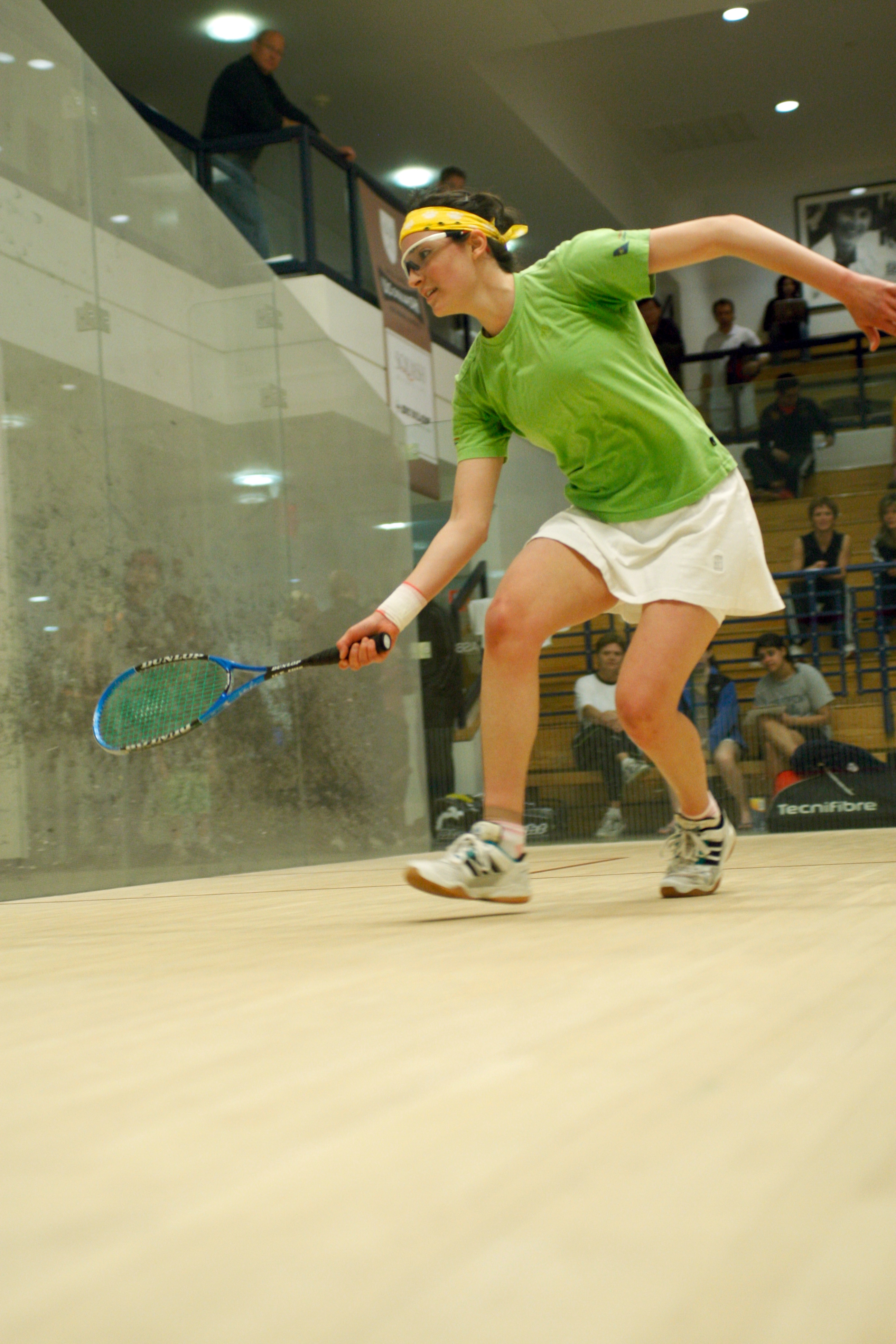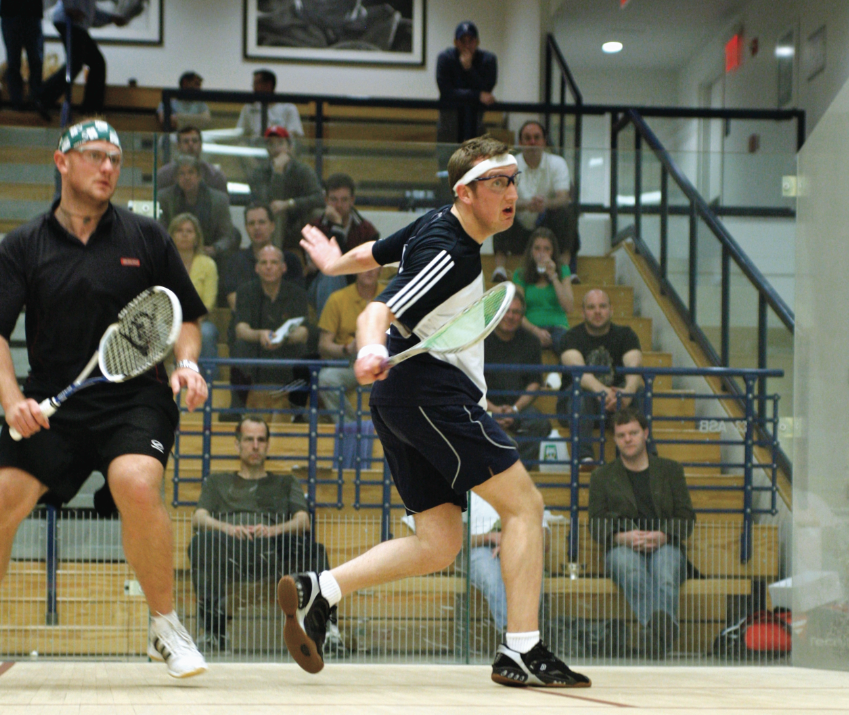
By Jay D. Prince
Two years ago, US Squash made a bold decision to separate the U.S. Skill Level Championships from the U.S. Championships (Age Groups) with the long-term goal of creating a blow-out weekend “championship of the membership.” In 2007, the first independent event was a hit when it was staged in New York City alongside the Tournament of Champions in February. The concept was off and running. This year, as the result of some scheduling changes (the Tournament of Champions was held in early January), the Skill Level event was moved to April and staged at Yale. And while lacking in amenities, the grand plan is on track.
On its surface, the 2008 version of the Skill Levels fell short. While Yale offers spectacular courts and plenty of them, the university setting cannot live up to the bells and whistles available at commercial clubs like the Harvard Club in New York City or the Midtown Athletic Club in Atlanta that hosted the Age Group Championships just a month earlier.
But the reality, however, is that if the independent Skill Level Championships were a book, then judging the whole of the event by it’s culminating weekend “book cover” would be missing the point. Or to borrow another cliché, it would be akin to not being able to see the forest for the trees.
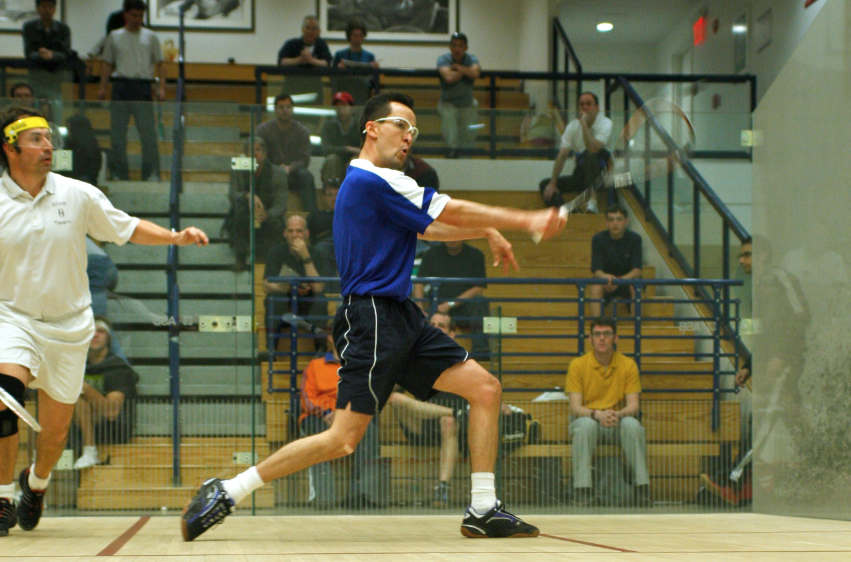
For participants, particularly those who also played in Atlanta in March, it was easy to draw the conclusion that the separate Skill Level Championships does not work. In stark contrast to cocktail parties at the Atlanta Aquarium and a spectacular black-tie optional dinner at the Piedmont Driving Club, the Skill Levels provided pizza on Friday and a small buffet with beer and wine on Saturday. US Squash acknowledges that improvements need to be made in future events, but the vision is squarely focused on the forest while it works on trimming the trees.
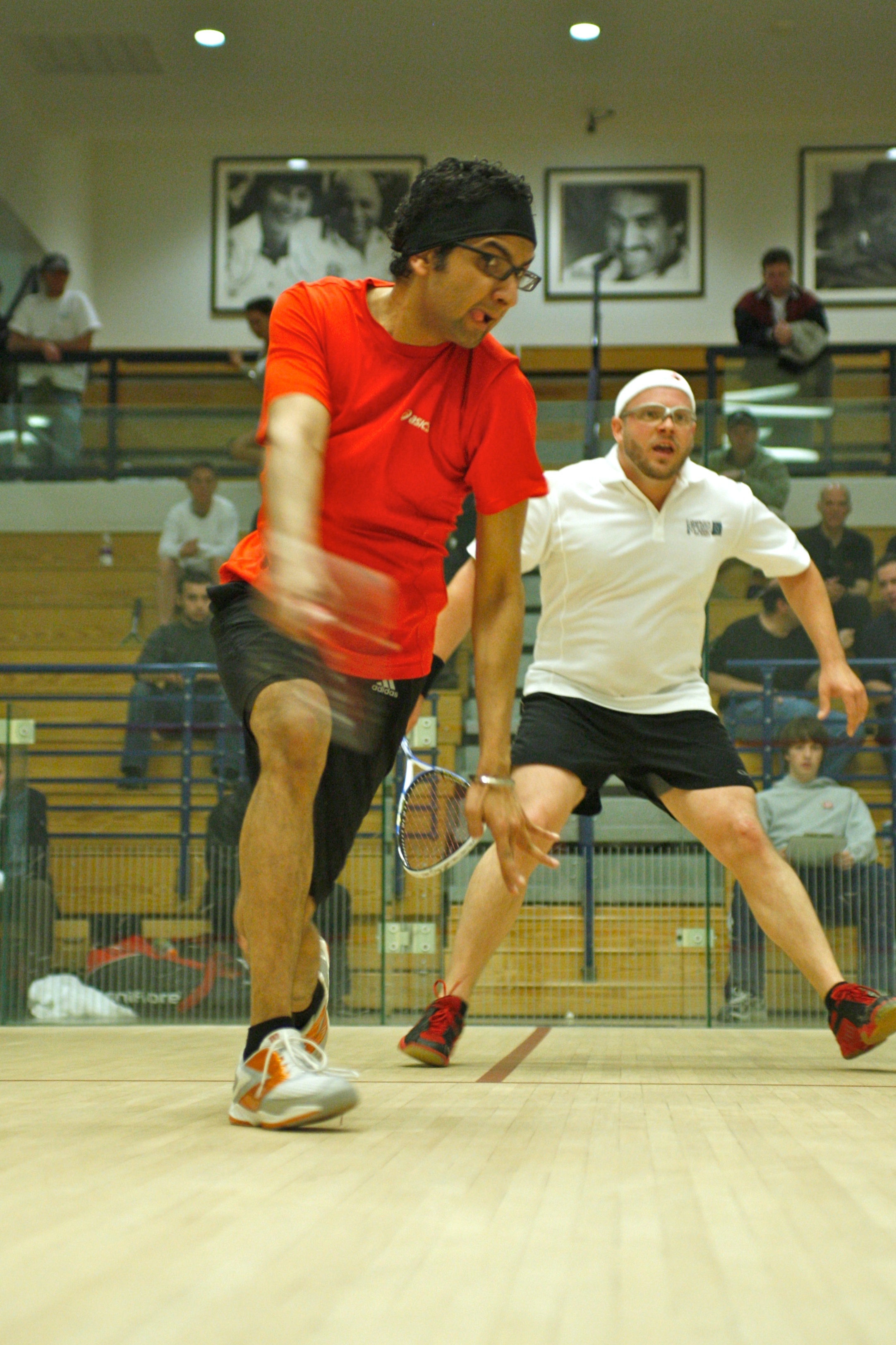
Though the Age Group Championships fielded 224 entrants and the Skill Level Championships only 165, overall the Skill Level nationals actually attracted over 600 players.
As announced by US Squash in the summer of 2006, the goal of the Skill Levels is to become the “Championship of the membership” by building out a regional qualification series to create a much more prestigious culminating event.
The first tangible steps toward a qualification series were taken this year by offering three new Regional Skill Level events. The first was the Grand Open in New York (again in conjunction with the Tournament of Champions) that drew 183 players; the second was the Rose City Classic in Portland, OR, with 108 participants; and finally the Windy City Open in Chicago with 154 entrants. Though not “qualifiers,” winners in each division were offered free entry into the US Skill Level Championships—a $150 value.
Ten players took advantage of the complimentary entry fee, and two won their respective draws—Allan Hardy (Men’s 4.0) and Rahul Singh (Men’s 5.0).
As US Squash CEO Kevin Klipstein is quick to point out, the ultimate goal of the Association is to drive participation and grow the membership of the organization as a whole. And by working toward a qualification system for National Championships, the prestige of winning a National title will be enhanced tremendously as players earn their way toward participating at the highest level.
The independent Skill Level Championships does, in fact, offer a cross section of the membership in that players from all levels have the opportunity to win a national title. And this year, two juniors, James Reiss (Men’s 3.5) and Margaret Chapman (Women’s 3.5), were crowned in their respective divisions.
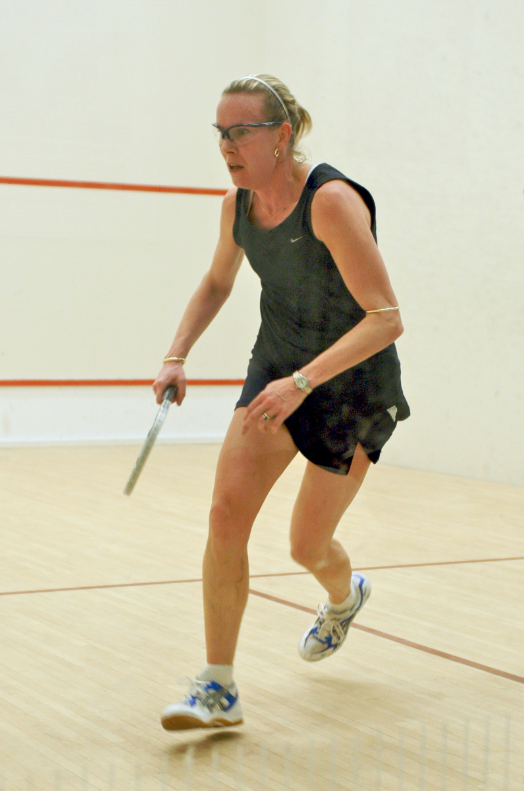
A third junior, Egyptian Nour Bahgat, burst onto the scene by running away with the Women’s 5.5. Bahgat, who helped lead her Egyptian junior team to the World Team title in 2007, will play for Trinity next year in the intercollegiates.
In the Men’s 5.5, Todd Wirsching traveled cross country from Northern California to surprise Adam Walker in the semis, and then pull off a stunner in the final by beating top-seeded Richard Millman in four games. Millman had narrowly escaped the semis when Jahangir Naseem, winner of the M5.0 in 2006, was up two games to one and seemingly in control before Millman gathered his experience and superior ball control to punch his ticket to the finals.
The most hotly contested match in the women’s divisions came in the 4.0 round robin between Nina Robertson of Rhode Island and Nathalie Martin of Alaska. After five grueling games, with both having opportunities to serve for the match, it was Robertson who escaped with the fifth game, 10-9. As a result, Robertson finished second and Martin third in the division that was swept by Elizabeth Solovoy.
Plans for next year are incomplete, and it is unclear when or where the US Skill Level Championships will take place. In a perfect world the Championship will be coordinated with a marquee PSA and/or WISPA tournament like it was in 2007. But continuing down the path toward regional qualifiers presents challenges with respect to timing and location. 2008 welcomed a dramatic increase in participation overall, nearly double the 324 entrants in the single Skill Level Championship in New York City. US Squash will continue to focus on adding to the regional structure with an eye toward bringing further “value” to the ultimate prize of winning a national title.
Despite the challenges of holding the Skill Levels in college venues, the reality is that the 610 participants in the four Skill Level events equalled the peak numbers that played in the Age Group Championship in San Francisco in 1995. Combined with the 220 who played in Atlanta in March, this year’s Age Groups and Skill Levels drew over 800 players—a dramatically larger forest than the 417 who played in the last consolidated event at Yale in 2006.
As with most sports and their governing organizations, growth is often driven more by offering a level of prestige in National Championships than by sheer membership benefits alone. And US Squash has established an ambitious goal of doubling its membership base to 20,000 within three years. While there will be hiccups along the way, like falling short of expectations in terms of player pampering at things like the Skill Level Championships, the development of the US Squash forest continues to grow more dense with the roll out of the overall plan.


